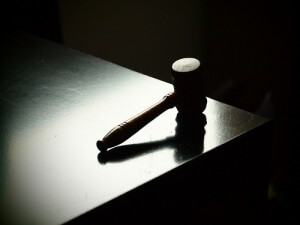What’s Love Got to do (with it)? The Love/Hate Relationship with the First Amendment
September 28th, 2015
Recently, the 9th Circuit Court of Appeals overturned a three-judge panel decision after reviewing the case en banc. The case overturned a ban on a very controversial film that had been released on YouTube. Without going into specifics of the film, other than to say that those who have viewed it have stated that it is almost certainly offensive with its depictions of Islam’s prophet Muhammad, the 9th Circuit has decided that despite the offense it causes it is protected under the First Amendment to the Constitution. Why protect something that is so obviously designed to inflame an already sensitive subject – i.e. religion? The answer may be a surprise to some, but should be understood by all who seek to study and fully appreciate the protections provided under the Constitution.
Protecting Speech: A case analysis
Garcia v. Google may sound like a David v. Goliath situation, but in actuality has little to do with the plaintiff having a beef with the internet giant, as the fight is over what content may be shown on the popular website YouTube.com. The plaintiff in this case, Ms. Garcia, filed a lawsuit requesting to enjoin Google from showing the controversial film mentioned above. Ms. Garcia is an actress who played a small part in the film, who alleges that she was told by the film’s creators that the movie would be very different than the actual final product. Instead of a rather innocuous film, the final “teaser trailer” used the scenes shot by Ms. Garcia and other unsuspecting actors in a way that led to them receiving death threats for mocking the prophet Muhammad. While the motives of Ms. Garcia may have been in response to the movie’s affront on Islam, her case actually hinged on a very different body of law; specifically, copyright law. Ms. Garcia argued, and the three-judge panel agreed, that she held the copyright on her performance and that Google infringed upon that copyright by showing the film. Google immediately requested that the decision be reviewed by the full Court.
Upon review, the full Court overturned the initial copyright decision, stating that it was “unconscionable” that the First Amendment was infringed for over 15 months while its opinion was pending. The Court found that the injunction suppressed speech that had become “newsworthy” and “politically significant” despite its offensive content, and therefore could not stand. It is important to note that the decision to overturn the injunction was strengthened by the fact that the reasoning for imposing it was a new theory in copyright law, and arguably untenable, as Ms. Garcia played only a small role in the film. The en banc court held that Ms. Garcia did not meet her burden to show that her “interests as an author” would be irreparably harmed by the showing of the film, and therefore, her copyright argument could not overcome the First Amendment concerns.
The interplay between the protection of religious freedom and free speech is one that will likely be studied many times in future cases. Universal Life Church Case Law will monitor decisions and provide updates and analysis, as these new additions to American jurisprudence move through the courts.
Photo Credit: orangesparrow via Compfight cc


